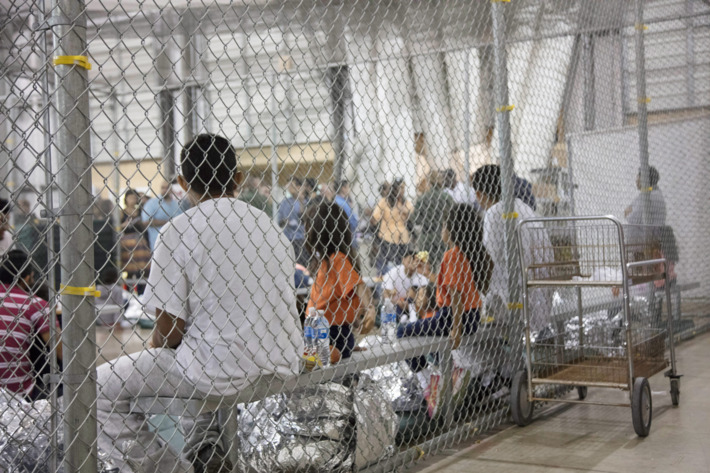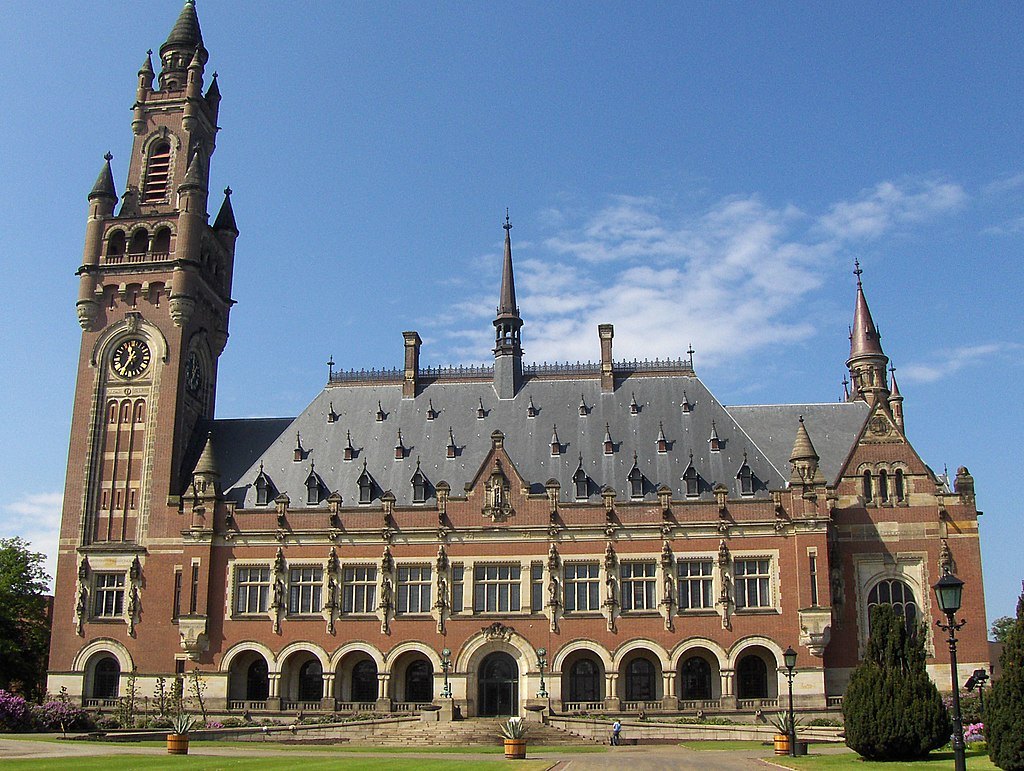Trump’s Zero Tolerance Immigration Policy Leaves No Room for Discretion
Despite President Trump’s rhetoric of law and order, his “zero tolerance” policy on immigration ignores what may be the most important component of effective law enforcement—prosecutorial discretion.

Published by The Lawfare Institute
in Cooperation With

Despite President Trump’s rhetoric of law and order, his “zero tolerance” policy on immigration ignores what may be the most important component of effective law enforcement—prosecutorial discretion.
To promote deterrence, Justice Department lawyers have been directed to prosecute every single case of illegal entry referred to them, regardless of the circumstances. Although children are no longer being separated from their families, the zero-tolerance policy appears to still be in place. But this one-size-fits-all approach is a radical departure from the Department of Justice’s normal practice of using prosecutorial discretion in making charging decisions. And it is an approach that rarely delivers justice.
When I served as U.S. Attorney for the Eastern District of Michigan, and we were reviewing a case for possible prosecution, we would ask ourselves two important questions. The first question was whether we can we prosecute the person before us, based on the facts and evidence. Under Justice Department policy, we needed to meet not just the bare legal threshold of probable cause that a crime had been committed, but a higher standard that “the admissible evidence will probably be sufficient to obtain and sustain a conviction.” This policy acknowledged that before the machinery of the criminal justice system should be employed against someone, there should be a strong probability that the person had actually committed the crime and that the crime could be proven in court.
But after this question of whether we could successfully prosecute this person, we tackled perhaps the more important question—whether we should prosecute this person. This decision was based on a variety of factors known as the “Principles of Federal Prosecution,” found in the U.S. Attorney’s Manual. These principles are in place to ensure that the criminal justice system is used to administer justice fairly and that scarce federal resources are used appropriately.
The Principles of Federal Prosecution require federal prosecutors to consider a number of factors before deciding whether to charge someone with a crime. Among these factors are whether a significant federal, as opposed to state, interest is at stake. Another factor is whether the crime involves a federal law enforcement priority. The deterrent effect of prosecution is also an appropriate consideration.
Most immigration offenses meet these three factors: Immigration is a uniquely federal crime that is appropriately prosecuted on the federal level and cannot be left to the states. The Trump administration has made immigration violations a high priority among criminal offenses for prosecution. The reasoning seems to be that the certain prosecution of everyone who is caught entering the country illegally will deter some from attempting to enter, unless they are fleeing something worse than potential prosecution.
But other factors require an individualized assessment of the particular case and offender. These factors include the person’s criminal history, the seriousness of the offense, the person’s probable sentence, and whether there exists an adequate non-criminal alternative to prosecution, among others. Illegal entry—a misdemeanor offense only—does not score high on any of these factors.
First, the zero tolerance policy makes no consideration for criminal history of the offender. Under this policy, first-time offenders are charged just as frequently as offenders with significant criminal history. There is no consideration for a person’s history of compliance with the law.
Second, considering the seriousness of the offense tilts against prosecution of misdemeanor offenses of illegal entry. By classifying illegal entry as a misdemeanor, Congress has indicated that it considers this offense less serious than others—such as drug trafficking, for example, which is punishable by lengthy mandatory minimum sentences.
Nor does the probable sentence in these cases support prosecution. The statutory maximum sentence is six months, and judges frequently sentence offenders to time served. Only a small penalty results from the substantial resources expended by the government in the prosecution.
The next factor, whether there exists an adequate non-criminal alternative to prosecution, is debatable. In the past, many individuals who entered the country illegally were subject to expedited deportation, in which they were quickly ordered to leave the country and taken to the border on a bus. Reasonable minds can disagree as to whether expedited deportation is “adequate,” because it lacks the deterrent value of a criminal conviction and potential prison sentence. On the other hand, once someone has been deported, he or she may not legally enter the United States again without the explicit permission of the attorney general. Reentry after deportation is a felony offense. While deportation may not be as strong a deterrent as prosecution, there is a reasonable argument that it is “adequate” as described in the Principles.
Prosecutors accept the fact that they must decline to prosecute some cases so that they can devote resources to more important cases instead. But with zero tolerance for illegal entry misdemeanors, many other crimes will go unaddressed. The Justice Department prosecutes about 70,000 cases per year, of which about 20,000 are immigration offenses. If prosecutors were to pursue every immigration offense, some estimate that the total number of cases would be 300,000, far exceeding the department’s current capacity. Even if the Department of Defense lends lawyers from the Judge Advocate General Corps to assist, as has been reported, there will be important matters—such as gang violence, drug smuggling, and human trafficking—that prosecutors must forgo as a result.
I learned this lesson the hard way while serving as a U.S. attorney. In an effort to protect public safety in Flint, Mich., our office agreed to impose a zero tolerance policy against felons caught in possession of firearms, which is legally prohibited under federal law. Our hope was to deter felons from using guns to commit violent crimes by prosecuting these cases, which the community lacked the resources to charge in the state system. We prosecuted some cases of felons using guns for violent crimes—but prosecutors also ended up spending their scarce time prosecuting individuals with decades-old felony convictions for non-violent offenses who now possessed firearms for personal protection. Our prosecutors explained to me how the policy was preventing them from focusing their time and attention on the most violent criminals who were threatening public safety. Our office ultimately changed the policy so that prosecutors could instead use their discretion to pursue the most serious offenses that were presented to them.
Two days after the president’s executive order limiting family separations, the administration’s stance on immigration enforcement remains somewhat unclear. The Washington Post reports that Customs and Border Protection officials will no longer refer parents who cross the border with children to the Justice Department for prosecution, though the Justice Department has said otherwise. The Wall Street Journal also reports that at one point on Thursday morning law enforcement was instructed “to prosecute only one adult traveling with children if two were present, and to prioritize prosecution of male adults.”
But the Justice Department insisted to the Journal as well as the Post that the zero tolerance policy remains in effect. If the department continues its policy of prosecuting all misdemeanor offenses of illegal entry, serious crimes at the border will go unaddressed; our country will be less safe; and more money will need to be spent to pay for the additional law enforcement officers, jail guards, prosecutors, defense attorneys, and judges it will take to process these many defendants. A better solution would be to permit the prosecutors on the border to use their discretion to decide which cases to prosecute criminally and which to turn over to immigration officials for deportation proceedings.





